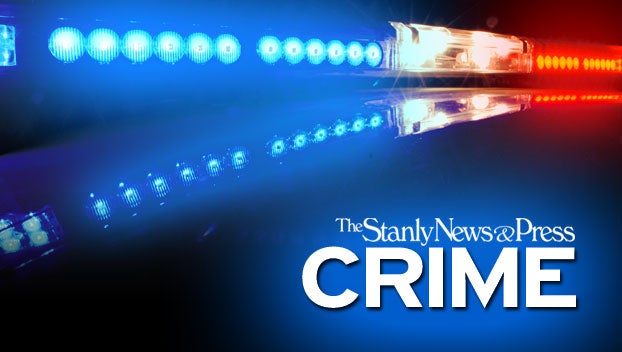Youth offenders can forgo traditional court system for Teen Court
Published 2:04 pm Monday, September 28, 2020
|
Getting your Trinity Audio player ready...
|
Teenagers who have been charged with misdemeanor crimes have the chance to complete a diversion program that will keep them out of the juvenile justice court system.
Established earlier this year by the Stanly County Juvenile Restitution program, the Stanly County Teen Court program allows teenagers to avoid the formal court system while also being held accountable for their actions.
The program was created after North Carolina, in December of 2019, became the last state in the country to adopt a Raise the Age law that no longer automatically charges 16-year-olds as adults.
“So basically they wanted all 100 counties to come up with diversion programs to try to keep our juvenile justice system from adding all those extra kids in there,” said Executive Director Shelly Kersey. “So that’s why we decided to step in and apply to do the Teen Court Program.”
A similar Teen Court program was established in 2018. It was under the umbrella of the Conflict Resolution Center, which was based in Cabarrus County. The program has since been disbanded.
How Teen Court Works
The program had its only in-person hearing at the courthouse Feb. 25 of last year before the coronavirus pandemic erupted in mid-March. Kersey said Teen Court has since been conducted online. Kersey said the tentative date to go back to the courthouse to hear cases is March 30.
While participants can be referred to Teen Court by a host of entities, including law enforcement and Department of Juvenile Justice, typically the reference is made by school resource officers.
“When Shelly Kersey and Stanly County Restitution began the new Stanly County Teen Court this past February, we found the perfect resource to help bring awareness to how the criminal justice system functions while holding students accountable for their actions,” said Beverly Pennington, director of student services at Stanly County Schools. “We are appreciative of the important work Ms. Kersey and Stanly County Teen Court is doing in our community.”
Offenses can include a host of charges such as shoplifting, larceny, trespassing, truancy, breaking and entering and simple assault.
Teen Court is a peer court for first-time offenders. The program is conducted by teenagers who are voluntarily trained in courtroom protocol, judicial process and the responsibilities of the various court personnel.
In order to be eligible for the program, youth must be between the ages of 11 and 17 and their charge has to have occurred in Stanly. Defendants must admit guilt, voluntarily agree to cooperate with the program and waive their right to a speedy trial.
The teens who are referred to the program are taught about the consequences of illegal behavior, the judicial process and the legal system.
The volunteers, along with a judge and adult jury coordinator, conduct court hearings for misdemeanor criminal cases on the last Tuesday of each month. The hearings at the courthouse resemble formal juvenile justice cases, with school resource officers typically playing the role of the bailiff and sheriff’s deputies take turns serving as security.
For youth who volunteer to help with the program, it gives them the chance to experience the inner workings of the courtroom.
“It gives them the opportunity to experience how juvenile justice runs in a courtroom and it gives them the opportunity to understand what the attorneys do, what a jury does, what a clerk does,” Kersey said.
The defendants are ultimately sentenced by a peer jury. The defendant is given a deadline in which to complete the sentence and submit verification to the coordinator. If the defendant fails to complete the program or has a new law violation, the case will be returned to the referral source for likely formal prosecution.
Jury members are given guidelines which include minimum and maximum sentence requirements. The possible sentences include community service work hours, community service projects, apology letters to victim, research projects/essays, restitution, educational classes and curfew.
Even though they don’t go through the juvenile justice system, youth “are still held accountable” for their unlawful behavior, Kersey said.
Kersey said 35 teenagers have been referred and accepted to Teen Court since the beginning of last February and 31 have successfully completed the program with no recidivism. The other four are still in the program.
“That’s only six months, but we’re still proud of those numbers,” Kersey said, especially since for much of this year students have been engaged in remote learning at home. When away from school, teenagers are more likely to engage in unlawful behavior, she said.
Teen court will be held at the Stanly County Courthouse in Albemarle from 4:50 p.m. to 8:30 p.m. during the last Tuesday of each month.
Youth ages 12 to 17 are needed to volunteer with the program. Each teen must attend orientation and training, and agree to participate for at least three teen courts, if possible. If people are interested in volunteering, they can reach Kersey at her office at 704-986-3784 or mobile number 704-985-5370. Her email is shellydross2000@yahoo.com.





